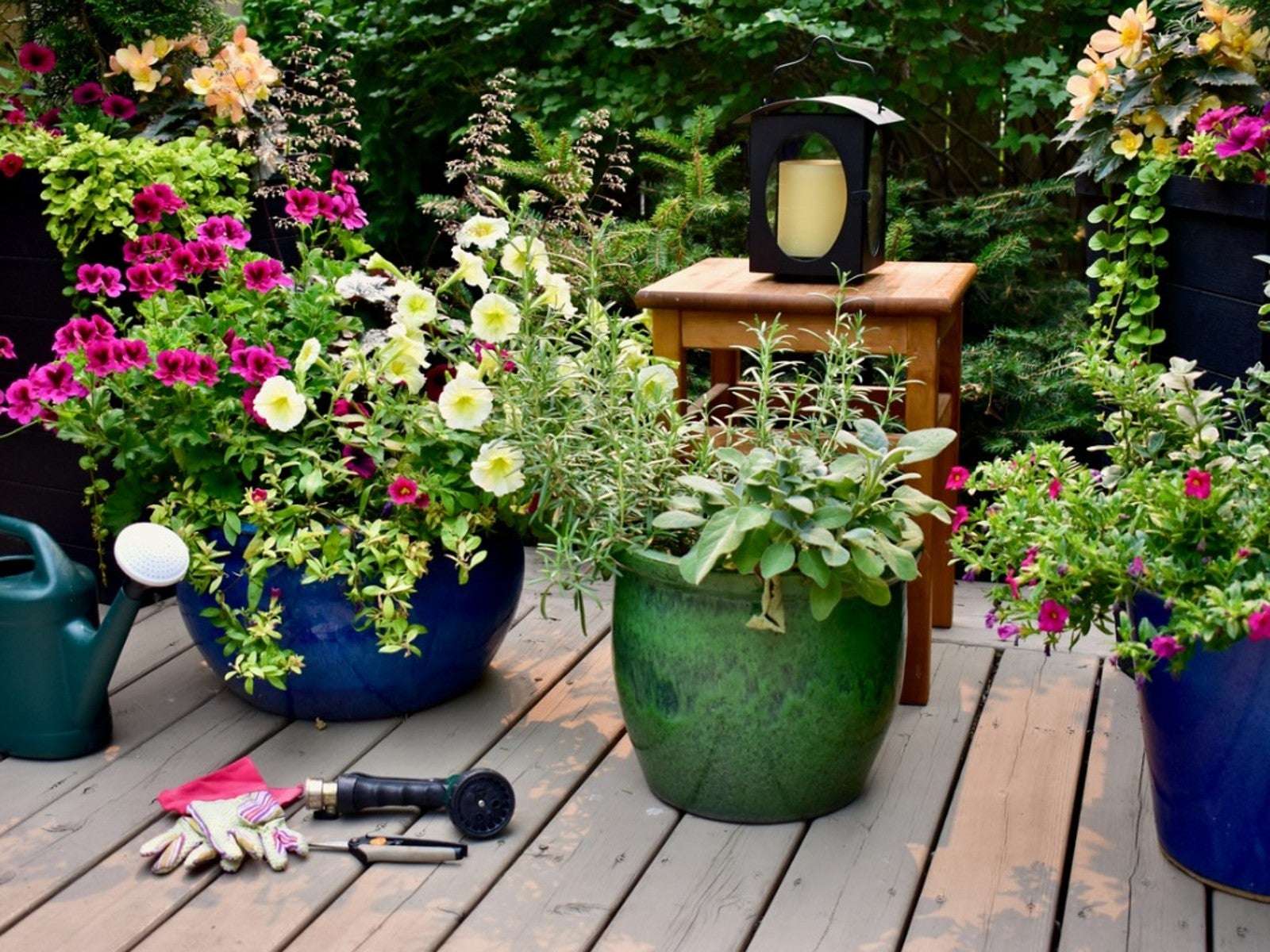Best Plants For Pots In Michigan And The Upper Midwest


Sign up for the Gardening Know How newsletter today and receive a free copy of our e-book "How to Grow Delicious Tomatoes".
You are now subscribed
Your newsletter sign-up was successful
Container gardening in Minnesota, Wisconsin, Michigan, and Iowa is a great opportunity for gardeners in these states to enjoy plants that aren’t suited for perennial beds. In containers, you can grow tender and tropical plants as annuals, or bring them indoors for winter. Containers also allow you to garden more efficiently in a small space.
Why Container Gardening?
Gardening in pots is a great choice for many reasons. If you have a sizable garden, you can supplement it with containers. Use them to decorate areas without soil, like a patio or deck.
If you don’t have much of a garden, containers provide a chance to grow more plants. Even if you only have a patio or balcony, pots allow you to grow flowers or even a few vegetables.
Finally, container gardening for the Midwest is a great opportunity to cultivate the types of plants that don’t suit this four-season environment. Grow tropical plants and tender perennials in a container as annuals or as year-round plants that you bring inside for winter.
Choosing Plants for a Container Garden
For a Midwest container garden, the sky is the limit. A container gives you the freedom to grow tropical plants, small shrubs or fruit trees, and plants with varying sunlight needs because you can move them around. Here are some ideas of plants that do well in containers and that will thrive in a Midwestern summer:
Annual flowers
Any annual blooming plants you find in the gardening center will work well in containers. These are tropical or other warm-region plants that only survive outdoors in the Midwest in summer. Try impatiens, begonias, petunias, marigolds, geraniums, zinnias, calibrachoa, and dahlias.
Among all the annual flowers are tropical foliage stunners. Look for tropical ferns, all the many color varieties of coleus, elephant’s ear, sweet potato vine, bloodleaf, croton, and caladium, just to name a few.
Sign up for the Gardening Know How newsletter today and receive a free copy of our e-book "How to Grow Delicious Tomatoes".
Ornamental grasses
Grasses add a showy element to a mixed container. Plant them in the middle and surround them with colorful flowers for contrast. Try blue oat grass, red or purple fountain grass, papyrus, and broad-leaf sedges, which come in many colors.
Herbs
For functional and sweet-smelling containers, grow herbs. All herbs grow well in containers. You can also bring them indoors for winter to keep them going.
Vegetables
You can also grow vegetables in containers, if you choose wisely. Avoid vining plants like squash and melons, as they grow too large. For tomatoes, choose determinate varieties to put a cap on growth. Look for bush-type varieties of some vegetables that do well in pots. In general, you can easily grow these in containers:
Tips for Container Gardening in Wisconsin, Michigan, Minnesota, and Iowa
Container-grown plants have all the same needs as plants in beds, but how you provide them varies. For the best results, keep these tips in mind:
Choose the right container.
Generally, the container size should match the plant. However, some plants prefer more space while others like to be root-bound. Do your research.
Use potting mix. Fill the containers with high-quality soil designed specifically for potted plants. They are lighter, drain well, and have nutrients.
Take care watering.
Follow guidelines for specific plants, but in general be sure that the container drains well and that the soil is routinely moist but not dripping wet. Keep in mind that the soil in a container dries out more quickly than in beds. Potted plants need more frequent watering.
Fertilize potted plants regularly.
Watering regularly leaches more nutrients out of the soil than occurs in beds.
Know your frost dates.
If you hope to bring containers in for winter, be aware of the average first and last frosts of the year. Your tender plants might not survive a frost. Additionally, pay attention to the weather in the event it looks like you might have an early or late frost in your area.

Mary Ellen Ellis has been gardening for over 20 years. With degrees in Chemistry and Biology, Mary Ellen's specialties are flowers, native plants, and herbs.